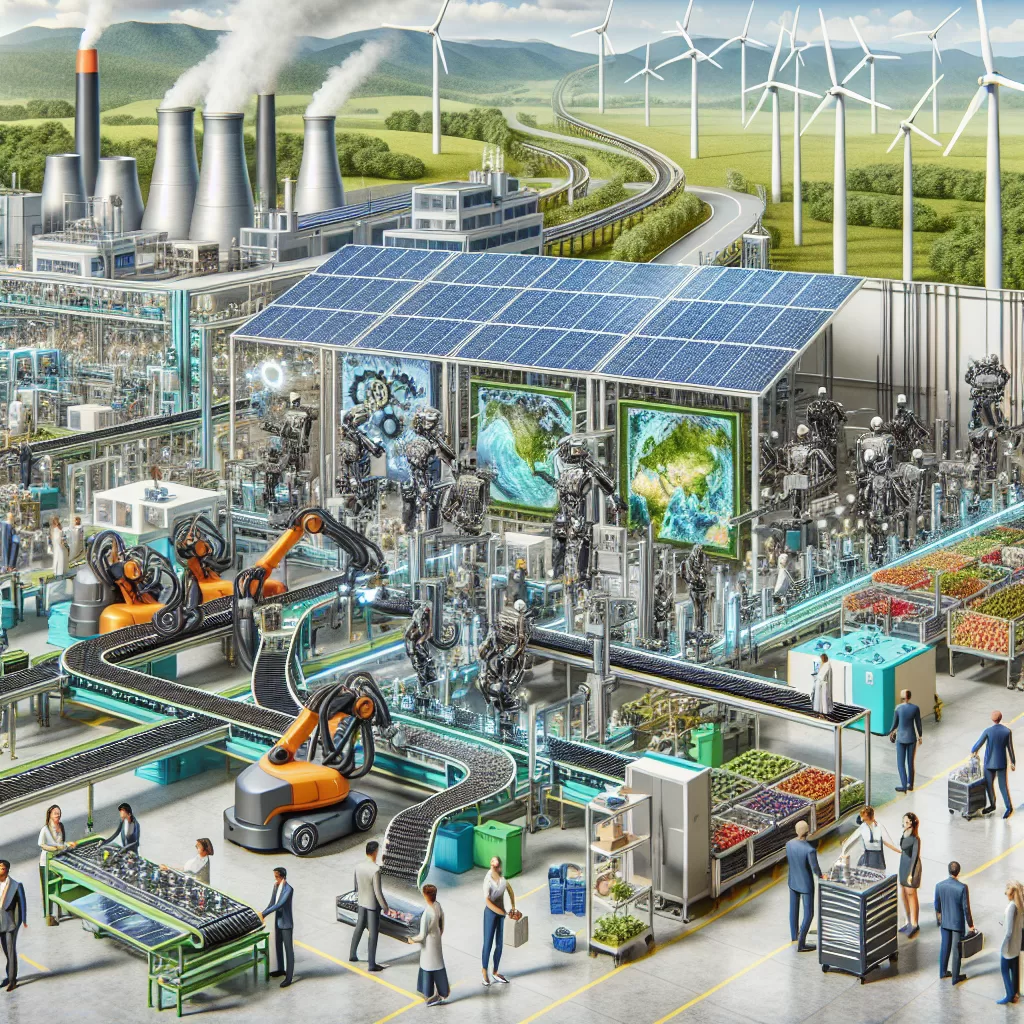The shift towards renewable energy sources has gained momentum, with global companies increasing their investment in solar, wind, and biopower by a staggering 70% over the past year. Manufacturing facilities are harnessing the power of solar panels, wind farms, and biomass energy, transitioning away from fossil fuels and paving the way for a greener future.
Furthermore, manufacturers are scrutinizing their supply chains and actively seeking eco-friendly suppliers. By partnering with companies that prioritize sustainability, they can ensure that every component and ingredient used in their products aligns with their environmental ethos. From sourcing recycled materials to adopting biodegradable packaging, this conscious approach extends beyond the factory walls.
Material selection is another area of focus, with manufacturers exploring alternatives that minimize harmful chemical exposure and pollution. The automotive industry, for instance, has shifted from electroplating with hexavalent chromium to using safer options like gold or copper, ensuring product durability without compromising environmental integrity.
Transportation plays a pivotal role in the manufacturing process, and companies are implementing strategies to reduce emissions during shipping and delivery. Electric and hybrid vehicles, optimized routes, and reduced idle times are just a few measures being adopted to minimize the carbon footprint associated with logistics.
Artificial Intelligence (AI) and the Internet of Things (IoT) are also proving invaluable in optimizing production processes. Machine learning algorithms monitor machinery, enabling predictive maintenance and ensuring energy efficiency. Real-time data analysis empowers manufacturers to identify opportunities for improvement and implement targeted sustainability initiatives.
Employee engagement is a driving force behind this transformation. Manufacturing workers are advocating for eco-friendly practices, and management teams are responding by actively pursuing greener operations. This collaboration fosters a culture of environmental responsibility within the industry.
Water conservation is another critical area of focus, with manufacturers implementing strategies to reduce waste, recycle, and treat wastewater responsibly. Low-flow fixtures, rainwater harvesting, and advanced filtration systems are becoming commonplace, demonstrating a commitment to preserving this precious natural resource.
Finally, manufacturers are rethinking product life expectancy, designing long-lasting, repairable, and recyclable goods. This cradle-to-grave approach minimizes waste and promotes a circular economy, ensuring that products have a positive impact throughout their lifecycle.
As consumers become increasingly conscious of their environmental footprint, the manufacturing industry’s embrace of sustainable practices is a welcome development. By prioritizing renewable energy, eco-friendly materials, responsible logistics, and resource conservation, manufacturers are not only reducing their carbon footprint but also paving the way for a greener, more sustainable future.
Tags: #SustainableManufacturing #RenewableEnergy #EcoFriendlyMaterials #GreenLogistics #WaterConservation #ProductLifecycle #CircularEconomy #EnvironmentalResponsibility

